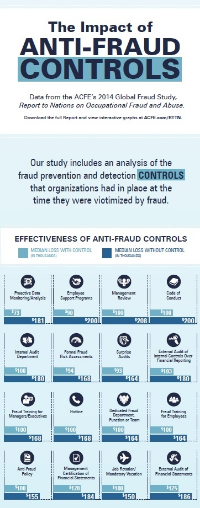Executive to Whistleblower: "Don't Give Me That Ethics Crap!"
/GUEST BLOGGER
Emily Primeaux
Assistant Editor, Fraud Magazine
When I moved to Austin at the start of the year, I immediately set out to find new establishments that provide services I use frequently: a local dry cleaner, hair salon, grocery store, post office, etc. Finding a local doctor also always ranks high on my list when I move to a new place. And I’ve moved many times.
The most important criterion I look for in a primary care physician is simply that they are well respected and have positive reviews from friends or other patients. Should anything happen to my health, I want to know I’m in capable and experienced hands.
“There is no single way to commit fraud in the health care industry,”
- Robert Church, CFE, FCPA, CVA
Health care fraud is a sensitive subject, because its prevalence means people like me can suffer at the hands of an irresponsible few. I recently spoke with Robert Church, CFE, FCPA, CVA, Director of Healthcare Investigations at Forensic Strategic Solutions, about a healthcare fraud scheme that took place at DaVita Healthcare Partners in Colorado. DaVita, a provider of kidney dialysis services, was accused of paying for referrals from physicians, which federal law prohibits. As Church explained, when a company pays a provider practice group or a physician for patient referrals, it becomes more about the money than the patients’ well being. Needless to say, this is exactly what I don’t look for in a new doctor.
Church’s extensive knowledge of the case revealed some pretty deplorable information. A former whistleblower himself, Church jumped right in to explain the discovery of the fraud by David Barbetta, a former financial analyst at DaVita, who worked in their mergers and acquisitions group. According to Church, when Barbetta discovered the fraud, he went to his bosses, but was rebuked at every opportunity when he discussed his findings with upper management. Per reports on the case, one executive even told him, “Don’t give me that ethics crap.” Frustrated and angry, Barbetta knew it was time to leave the company and file a claim with the authorities.
Church went on to explain that Barbetta came to authorities with spreadsheets of sales, emails, and insight into the company and its operations. These showed that DaVita was involved in three fraud schemes:
- They allowed physicians to be a part of joint ventures with DaVita and kidney dialysis centers across the country. They then shared that ownership interest at a lower price than fair market value.
- They bought dialysis centers by acquiring them from referring physicians at a value that was in excess of fair market value.
- Finally, to ensure physicians received as much cash as possible, they manipulated the books and records of these joint ventures to squeeze out as much money as they could. One exec even referred to it as a “money bag for physicians.”
As Church discussed, having a whistleblower was crucial when it came time to find the information the fraud examiners needed to break the case open. However, it’s the lessons learned that fraud examiners should consider. “Fraud and health care can exist at all levels and in a host of ways. There is no single way to commit fraud in the health care industry,” says Church. “Companies that are bottom-line-only oriented or cash oriented will go to great lengths to both commit the fraud and cover it up.”
In DaVita’s case, they recently paid $389 million to settle criminal and civil anti-kickback investigations and ended joint ventures with kidney doctors at 28 dialysis clinics. “Eyes open is the order of the day,” says Church. “Recognize that schemes can take a host of avenues to get a company to the end result.”
To hear the entire interview with Robert Church, visit ACFE.com/podcast.





